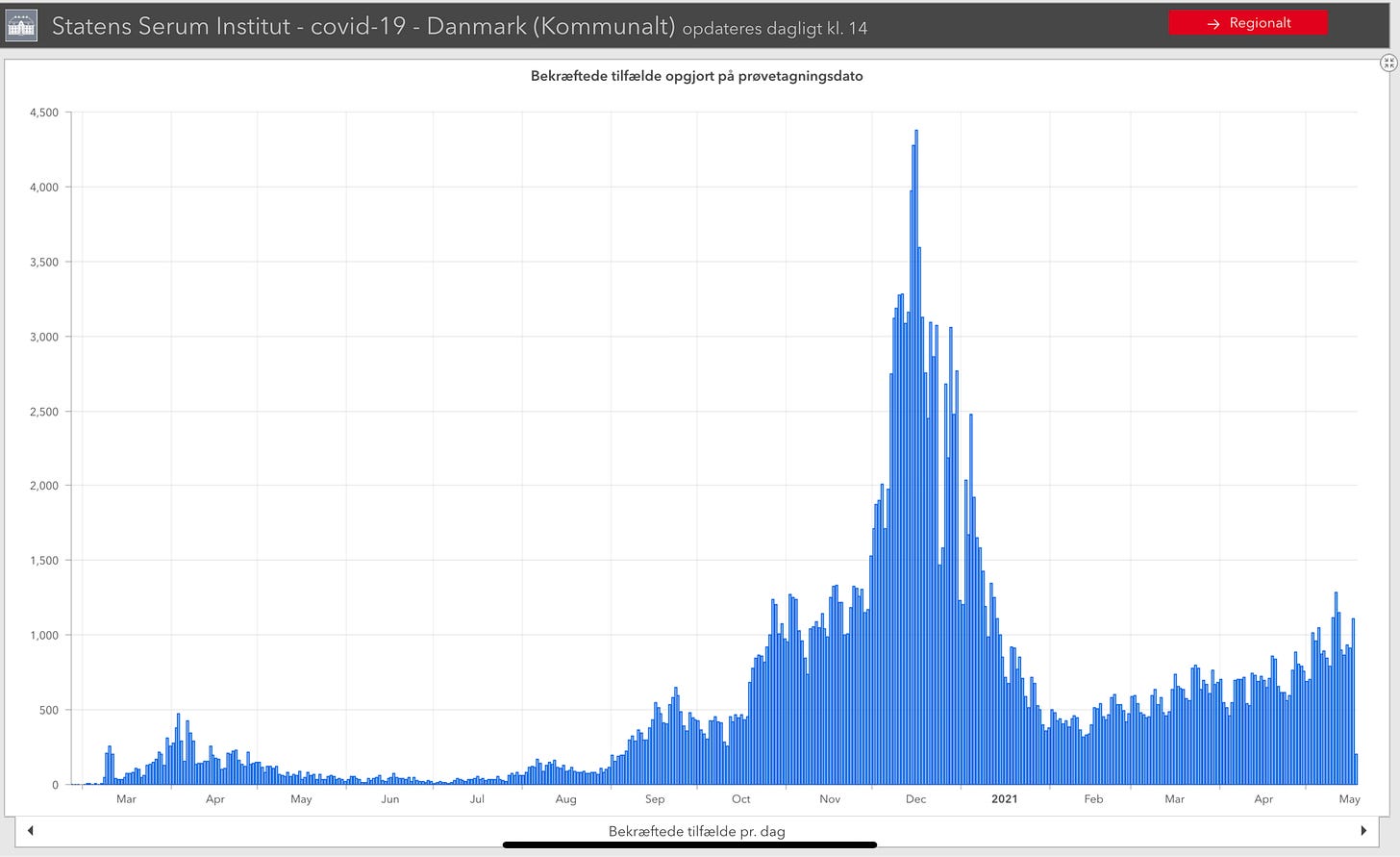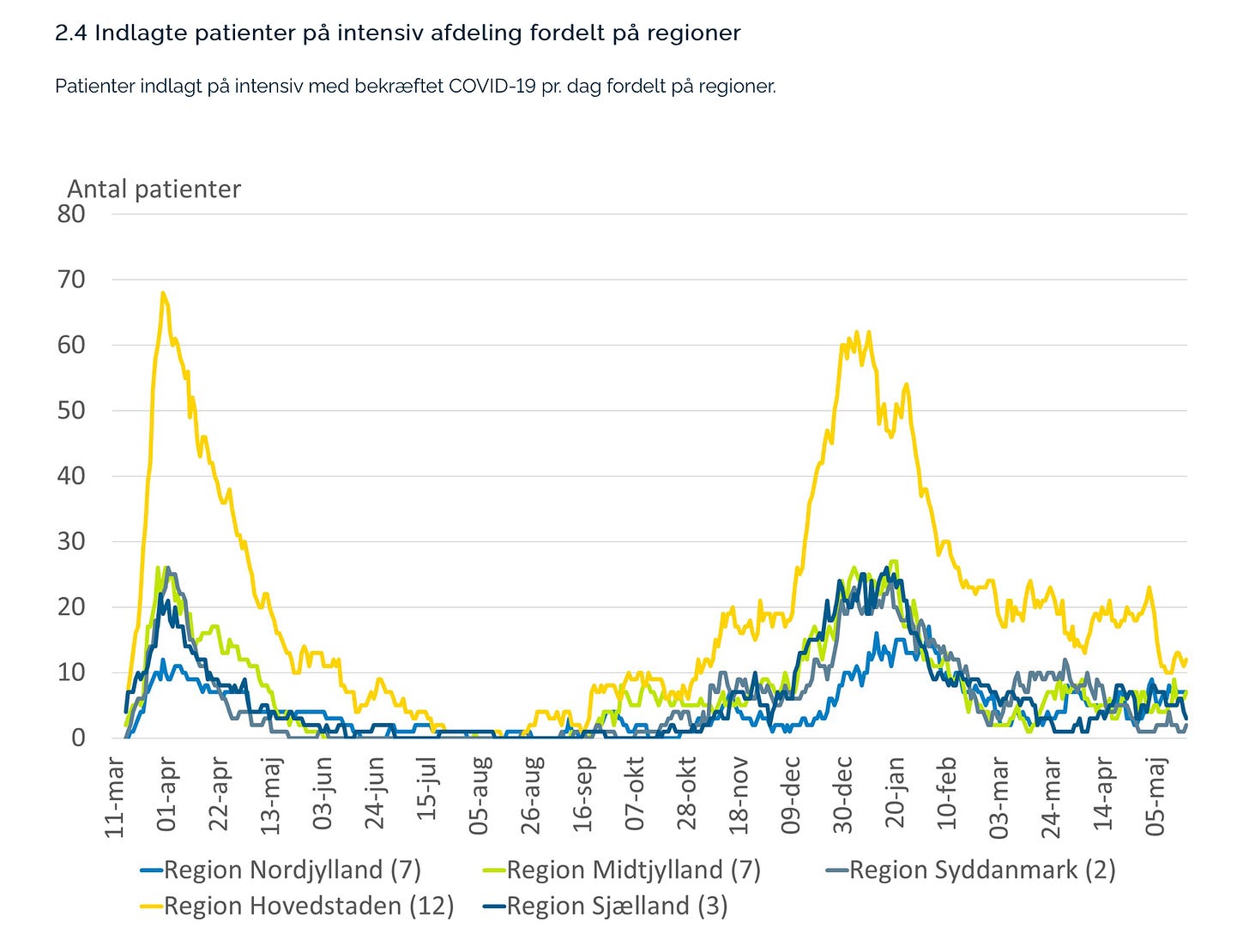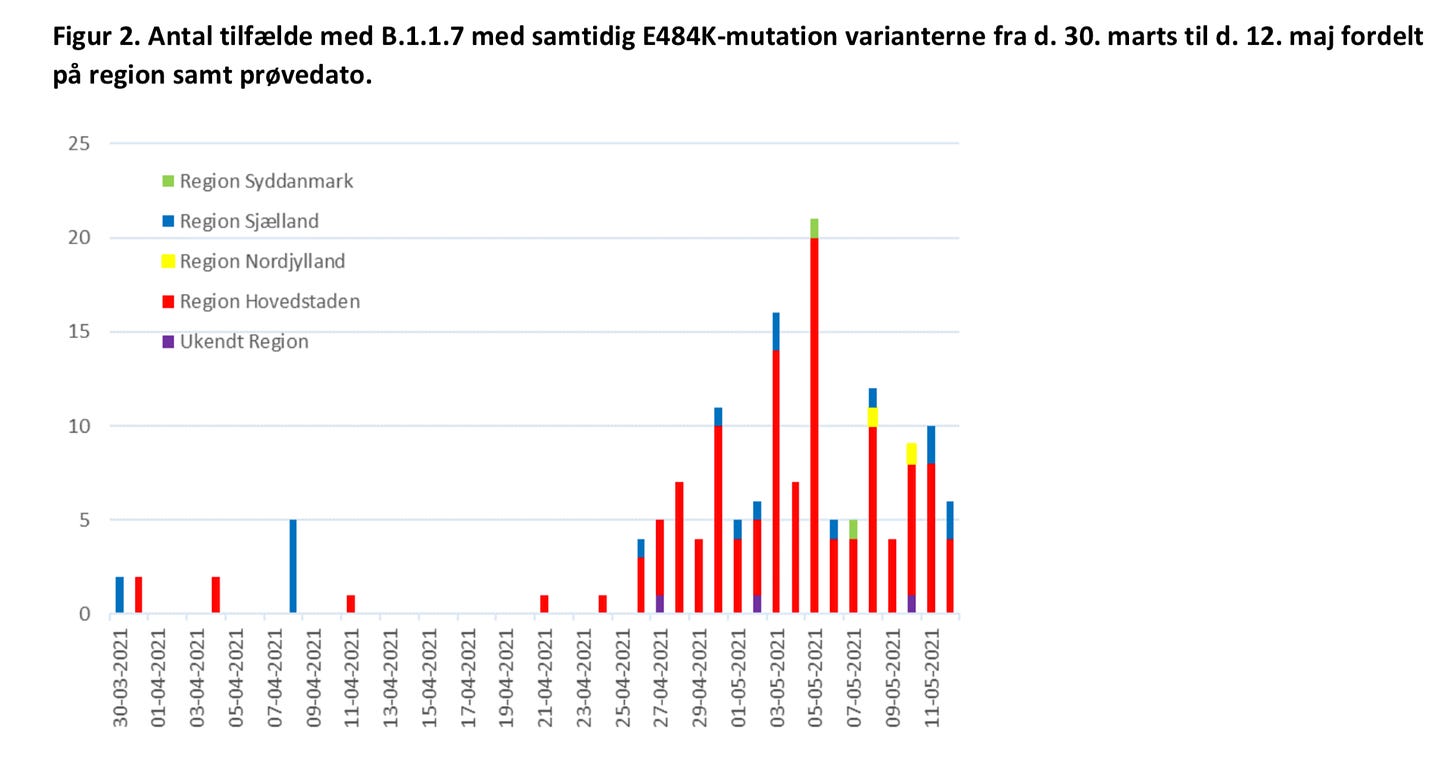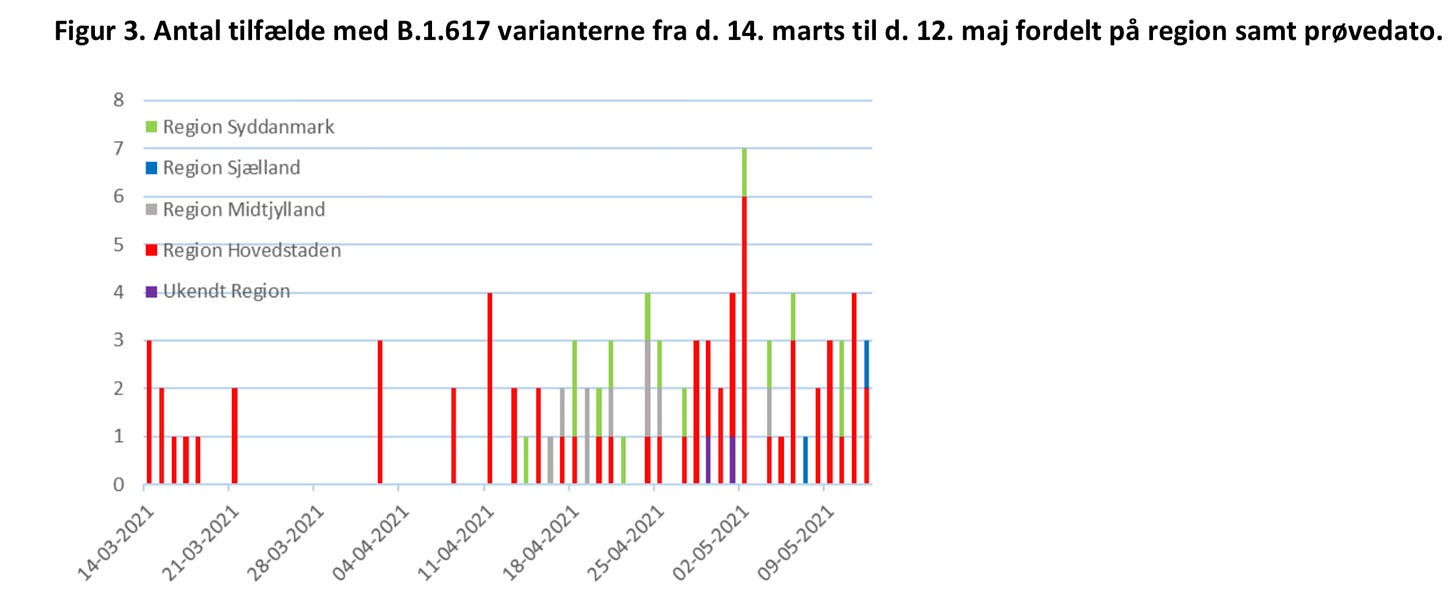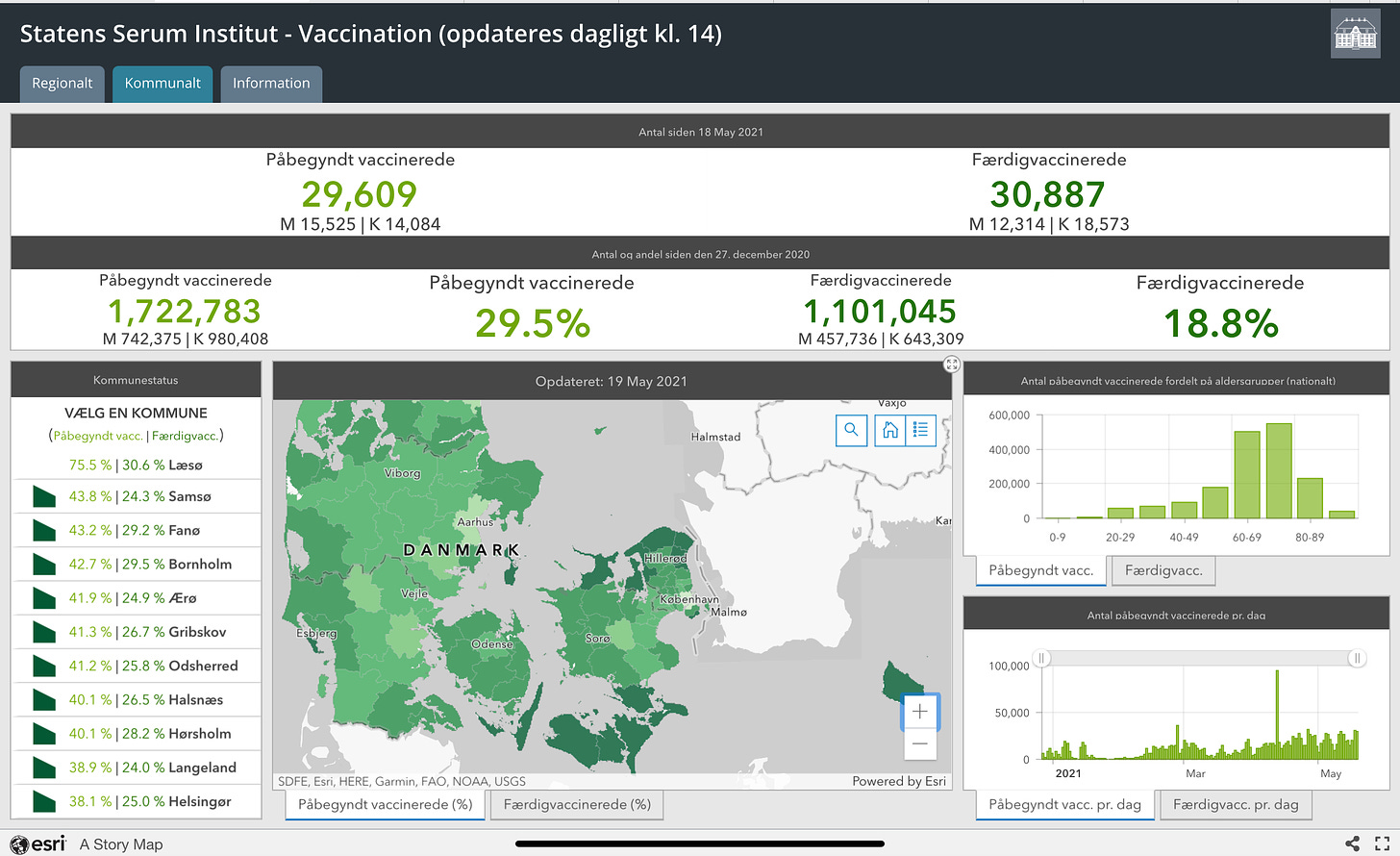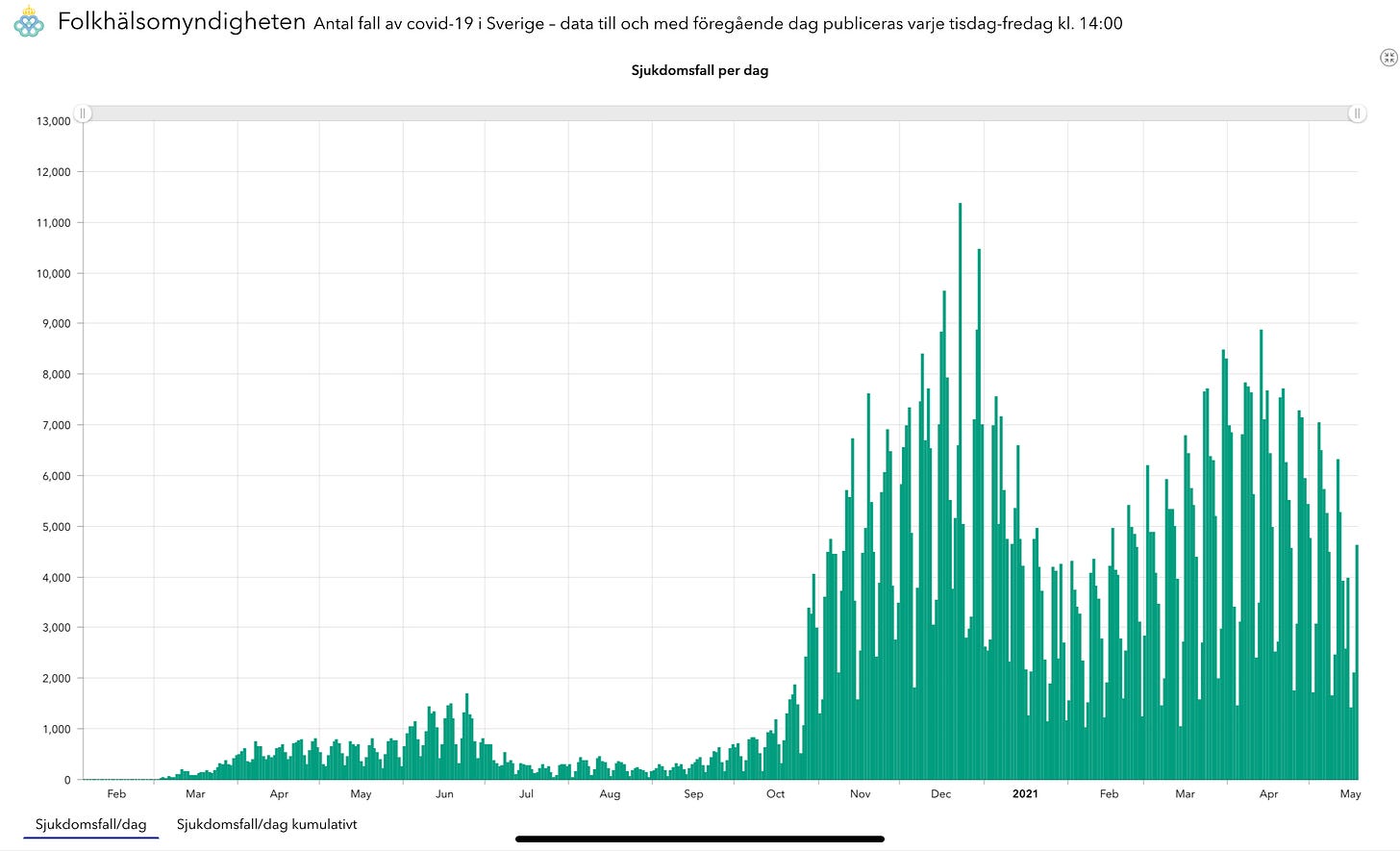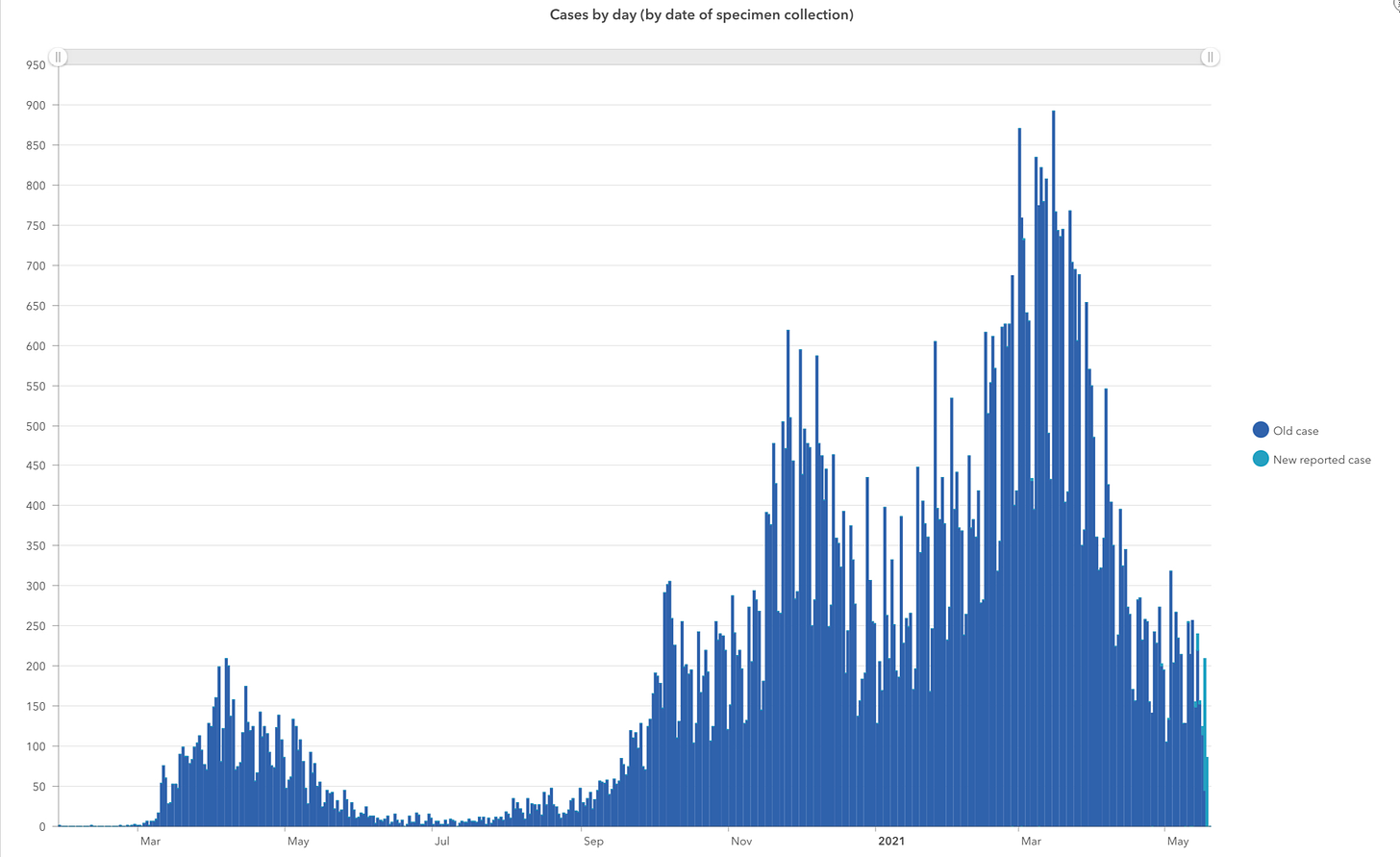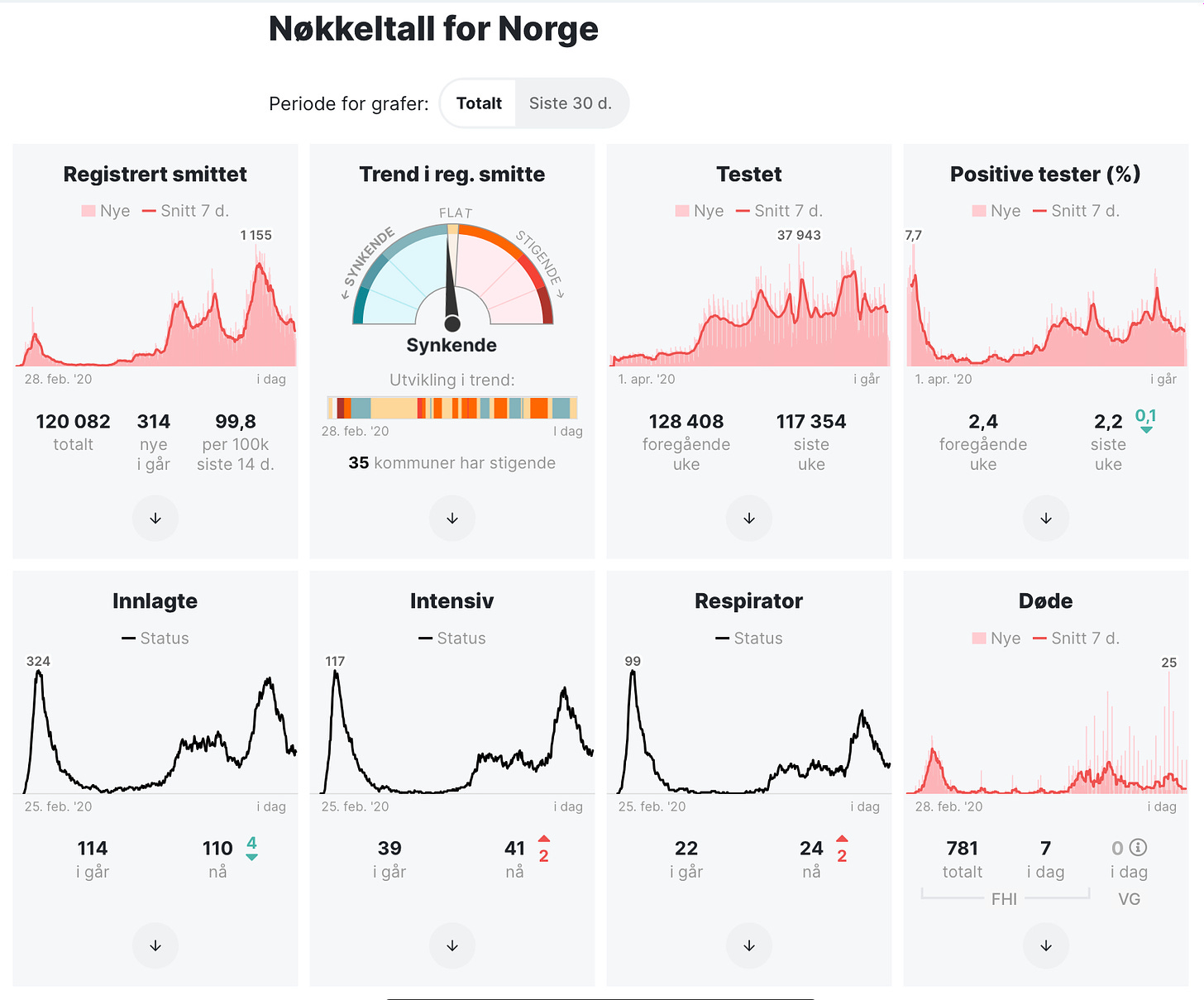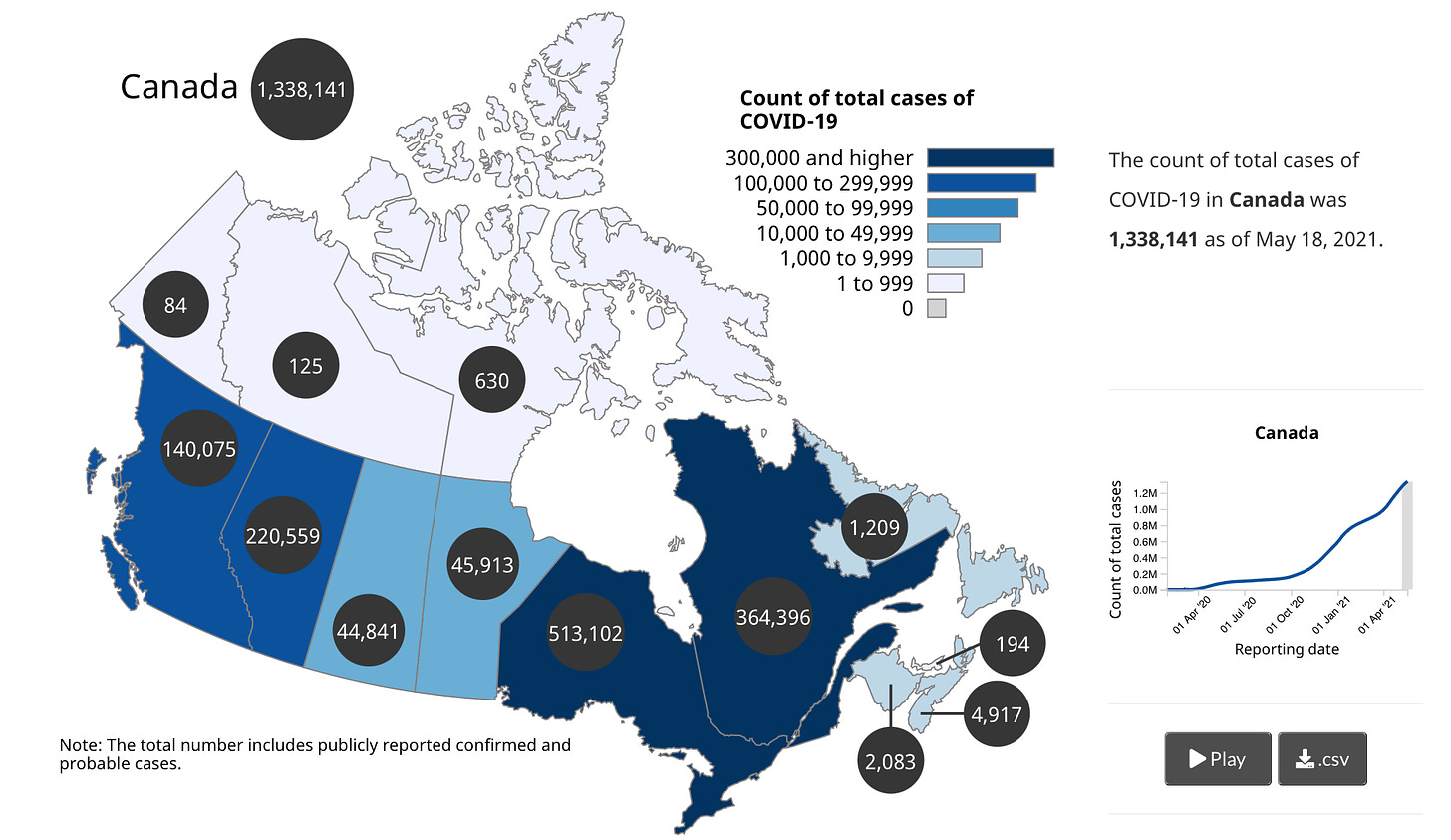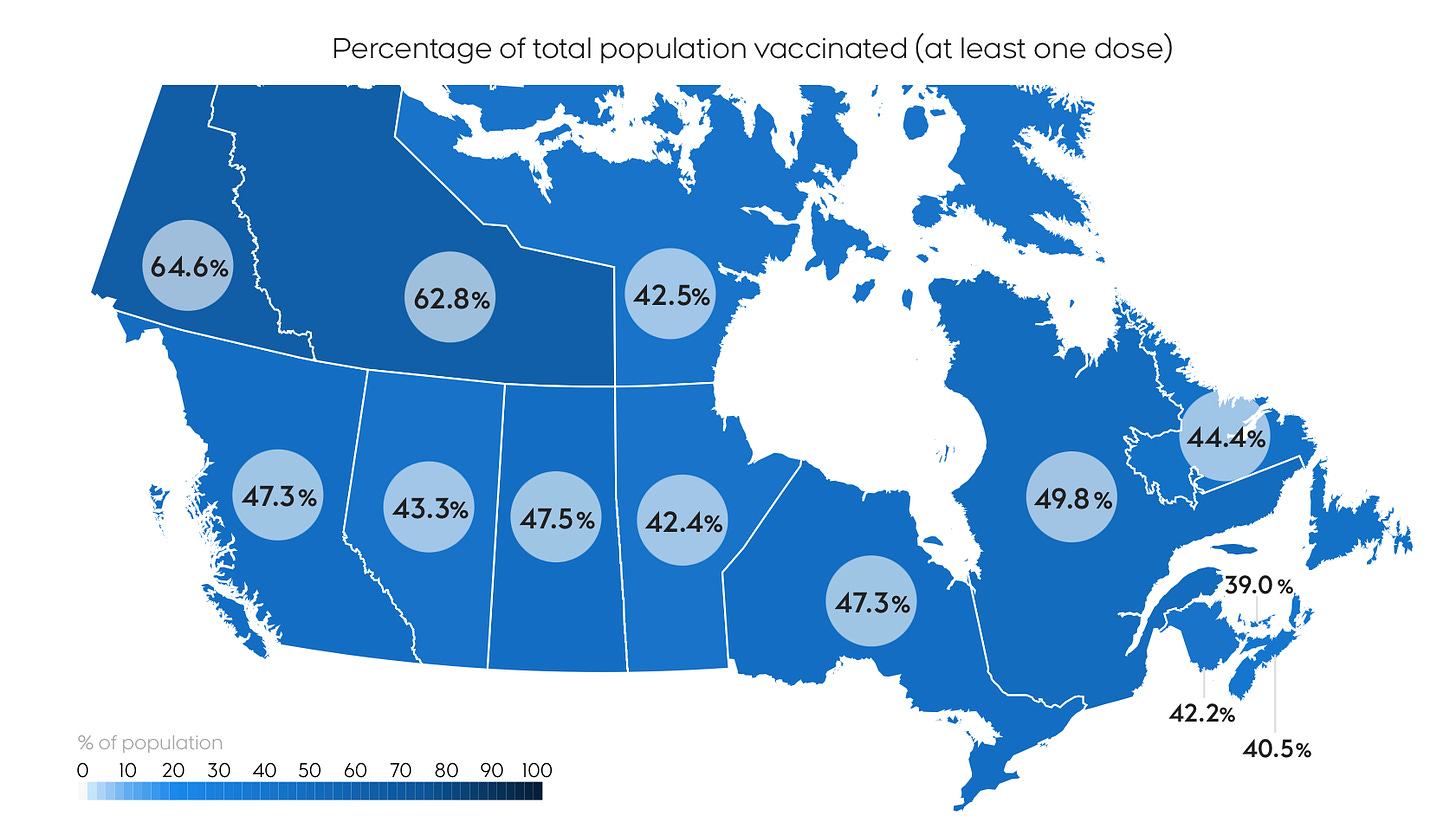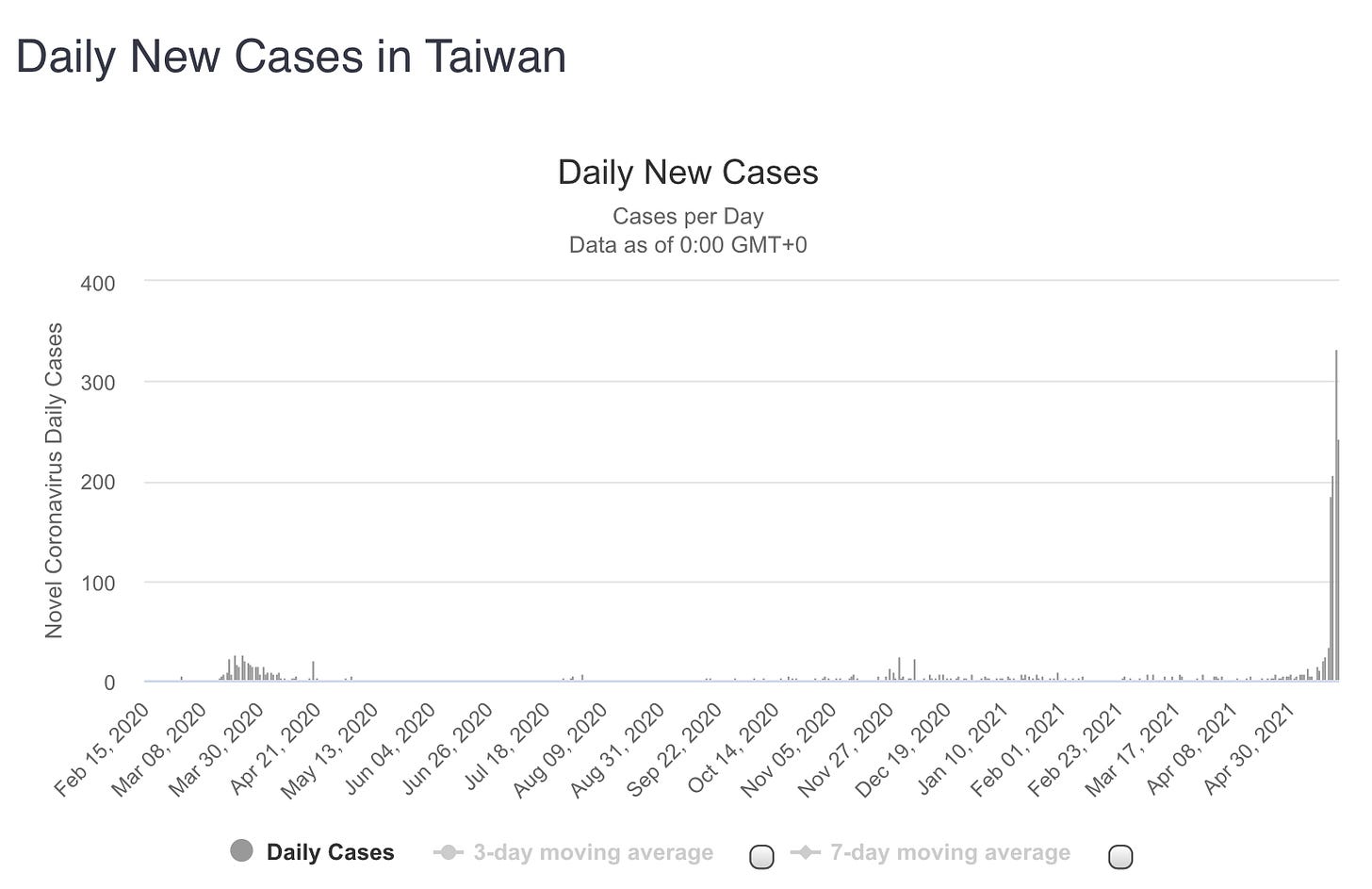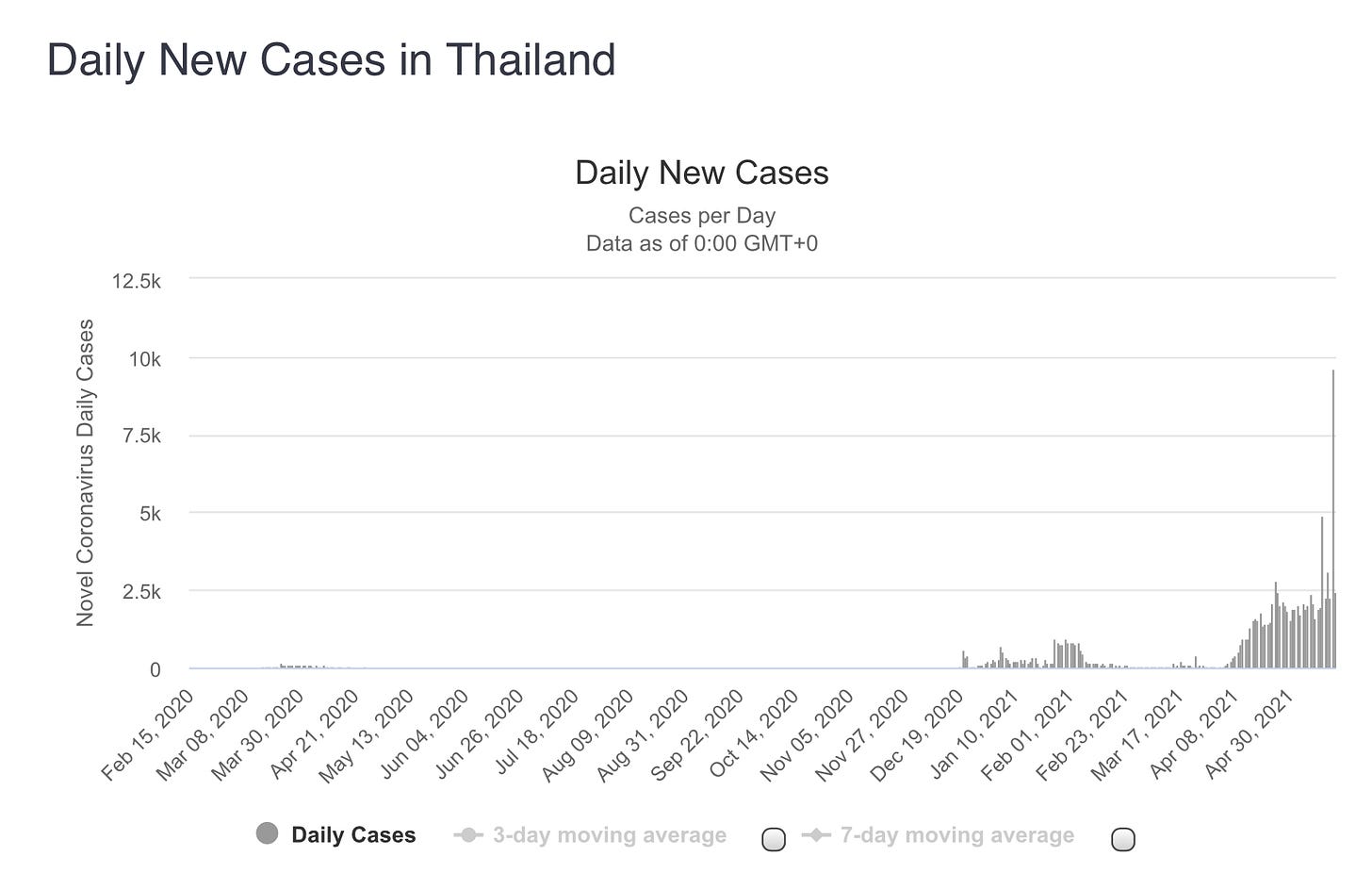🇪🇺🌎
The European Union will open its borders to fully vaccinated travelers from non-E.U. countries deemed ‘safe.’ E.U. officials are working on a list of safe countries based on the COVID epidemiological situation. The list should be out later this week. It has also adopted an travel “emergency brake” mechanism allowing for swift coordinated travel restrictions across the bloc. The restrictions would be levied on a country or region, for example, where a variant of concern has popped up in order to try to prevent its spread throughout Europe.


E.U. negotiators have proposed dedicating a significant chunk of money to go to ensuring free COVID testing in talks over the bloc’s vaccine passport, or GreenPass. The idea, much like what is already in place here in Denmark, is to offer testing so people who aren’t yet vaccinated can, with a negative test result, enjoy the same freedom of movement around Europe as those that are vaccinated. Negotiations will continue with the goal of reaching an agreement before summer.
🇩🇰
Denmark’s National Health Board says vaccinations will open up for two new target groups, 10c and 10d, over the next two weeks. Those 50 to 54 years old as well as “the first cohorts” in age groups 16 to 19 and those 40 to 49 will begin vaccinations.
Director Søren Brostrøm says the two new groups cover about 840,000 people.
"It is very satisfying that we have now reached the milestone where we can start with the last four, and the largest target groups, which also means that everyone over the age of 50 will soon have started the vaccination process.”
At present, no vaccines are approved for use for children under the age of 16. However, the European Medicines Association is reviewing an application from Pfizer to extend its vaccine use to children as young as 12. Other jurisdictions, like the United States, have already begun vaccinating children. The EMA is expected to make a decision in June.
-
COVID restrictions on public transportation will also be eased on the 21st. The Danish Transportation ministry says with more people headed back to work and school, limits on passengers will be raised on all regional trains, long distance trains, and buses.
Transportation Minister Benny Engelbrecht says the change will come into force on Friday.
“We have recently seen in the trains that some passengers book seat tickets for several trains to be sure to get where they are going. It creates a lack of space for others. Hopefully, the urge to stock up can be alleviated when a little more space becomes available. The reopening must take place safely. Therefore, it is still important that we keep our distance whenever possible and remember hand sanitizer and wear masks.”
The requirement to reserve a seat on DSB’s trains prior to travel remains in place.
-
Region Midtjylland has become the latest health region in Denmark to open up waiting lists for excess vaccine doses to everyone.
To be on the list you have to sign up every day between six and eleven o’clock in the morning. You must not have had a first vaccination yet, must live within 30 minutes of the vaccination center in question, and have the ability to get there very quickly if called.
As in other health regions, very few doses are left over at the end of each day. The health authority says in week 18 there were 15,560 people on the waiting list with 671 getting an excess vaccination dose.
You can sign up to be on the list HERE. (Click on the ‘Hvordan kan jeg melde mig til en rest-vaccine?’ box about mid page.)
-
Denmark is reporting 1,088 COVID infections and two more coronavirus deaths in the last day.
Yesterday 632,313 total corona tests were done, 188,043 PCR and 444,270 rapid, for a (PCR only) positivity percentage of 0.58%.
COVID hospitalizations (163) have dropped slightly (-3) while the number of infected people in an ICU (33) has inched up (+2), and, of those, the number of people on a ventilator (24) also inched up (+1).
ICU numbers by region graph below.
-
The number of variants of concern in Denmark continue to gain more ground.
The further mutated U.K. variant with the E484K ‘escape’ mutation has now been identified in 151 cases.
The numbers of the India variant have also increased. The Staten Serum Institut has divided the strain into two subtypes B.1.617, and the one of heightened concern, B.1.617.2. To date there are 32 confirmed infections identified as B.1.617 and 52 infections that are B.1.617.2.
The variant first identified in Mexico that was behind a headline grabbing outbreak in Northern Sjælland a few weeks ago has also been found in greater numbers. The B.1.1.519 strain has now been confirmed in 159 cases.
-
On the vaccination front to date, 1,722,783 1st dose vaccinations (29.5% of the population) have been administered while 1,101,045 people (18.8%) are now fully vaccinated.
Yesterday there were 60,496 total vaccinations done.
The Southern Denmark Health Region (Region Syddanmark) has released its latest vaccination update. It received 65,160 vaccine doses this week, most of them Pfizer/BioNTech. There are 9,000 Moderna doses that will go to second doses for healthcare workers who had AstraZeneca as their first dose.
This week the health region is opening vaccinations up to those aged 50 to 54 years old with the oldest being called first.
To date, 363,028 people (29.6%) in the region have had one vaccination dose while 215,483 have had both.
-
About 2,000 people in Denmark have signed up to get the AstraZeneca or Johnson & Johnson vaccine through the alternate scheme being set up by the government. That is according Jonas Nilsen, co-founder of Practio, who told the Jyllands-Posten that about 100 doctors have shown interest in administering the two vaccines. The alternate scheme was set up after Denmark dropped both AstraZeneca and Johnson & Johnson due to rare but serious side effects.
-
North Jutland Police says they are making Jomfru Ane Gade in Aalborg a temporary ‘hot spot.’ It goes into force tomorrow and remains in place until at least May 31st.
Police Inspector Claus Danø:
"Since we can see that the number of infections in Aalborg municipality, especially among young people, is increasing, we are taking this step to avoid crowds outside the restaurants.”
The measure means police will have a visible presence in the area to enforce the rules and make sure people aren’t gathering in large groups.
“Our patrols will be in and around Jomfru Ane Gade, where we will have a dialogue with the guests, especially around closing time, so we avoid people clumping together too much when they leave.”
If police are seeing behavior they don’t like then they can issue a residence ban in and around Jomfru Ane Gade, effectively shutting the area down.
-
The Danish government wants to extend a law requiring employers to ensure regular mandated COVID testing for their employees. The legislation is due to expire in June but Denmark’s employment minister has called called the parties in parliament together to discuss an extension.
Employment and Gender Equality Minister Peter Hummelgaard:
“The number of vaccinations is progressing and the reopening is underway, but there is still a need for employers to have incoming workers tested and for homes provided by employers not to be contagious. That is why I have today convened the parties in the Folketing to discuss the possibility of extending the ministry's laws on testing in Danish workplaces and control of housing provided by the employer for the rest of the year.”
He says requiring employees to undergo regular testing is especially crucial with new and possibly more concerning variants circulating.
-
The broadened reopening agreement reached in the Danish parliament this week is getting a mixed reaction from Dansk Industri. On one hand, it likes the fact people with one vaccination dose will get the same freedoms as those who are fully vaccinated, an idea it pushed for. On the other hand, the group says it is “annoyed” that restrictions on business travel weren’t addressed and that more flexibility wasn’t put into the automatic local lockdowns.
DI CEO Lars Sandahl Sørensen says the first dose vaccination change is significant.
“It will give more than 600,000 Danes a valid corona passport without having to get tested all the time. It will increase the mobility of the community and it will have a big impact on how easily the vaccinated can visit restaurants, amusement parks, football games, and use the liberal professions. It will kick-start society, and it will ease the pressure on testing capacity.”
The other change DI is applauding is the plan to get people working from home back into their office or workplace.
“We hear from many companies that there are a number of employees who are languishing and have lost their job satisfaction during the lockdown. Working remotely has taught us a lot about the use of digital tools, but it is high time that working from home returns to being only an option and not a mandate.”
-
Lawyer Jakob Lund Poulsen has been appointed to lead a Commission of Inquiry into the order, later deemed to be illegal, given by the Danish government to cull millions of farmed mink over corona variant fears. Poulsen has the power to interview anyone he sees fit and take his investigation anywhere it leads.
The Danish parliament (Folketing) recently set up the Commission of Inquiry with a view to investigating the lack of legal authority for the demand that the Danish farmed mink be killed. It is the Folketing that has defined the commission's task in a terms of reference, but the Folketing cannot interfere in the investigation itself once it starts.
Poulsen has one year to conduct his inquiry.
🇸🇪
Sweden has added 4,619 infections and 48 more corona deaths since yesterday’s update.
To date, 3,329,463 1st dose (40.7% of the population) and 1,032,637 2nd vaccine doses (12.6%) have been administered.
-
According to TV2 Swedish Intensive Care Doctors who say the pandemic has put many Swedish health regions under enormous pressure would like to ask neighboring countries for help. The doctors say the pandemic has exacerbated existing health staff shortages as exhausted and stressed nurses and doctors resign or call in sick. Sweden went from a severe second wave to a third one with almost break amping up pressure on already jammed hospitals. We are already far beyond what we can handle, Chief Physician Anette Nyberg told TV2.
Sweden’s ICUs must have 20% capacity free to deal with crisis situations. They haven’t had that since March, on April 8th it was down to 12%.
At a meeting between the country’s intensive care physicians the question was raised about turning to Denmark or Norway for help. However the Swedish Public Health Agency told TV2 they flatly reject the idea. In December, both Finland and Norway offered to relieve Swedish hospitals by receiving coronavirus patients or sending staff to the hospitals under pressure. But Sweden said no then too.
🇫🇮
Finland registered 289 infections and had no new virus deaths since yesterday’s update.
COVID hospitalizations (148) are up (11). ICU numbers (26) also rose (+1).
To date, 2,161,597 1st dose (38.8% of the population) and 307,106 2nd vaccine doses (5.5%) have been administered
-
People in Finland will be able to access an interim vaccine passport on May 26th. The Finnish government says while people will be able to use the vaccine passport, its scope is limited as it was designed to be a temporary solution until the European Union rolls out its vaccine passport, or GreenPass.
🇳🇴
Norway has added 414 infections and has had seven more corona deaths since yesterday’s update.
COVID hospitalizations (110) are down (-4). ICU (41) and ventilator (24) numbers are up (both +2).
To date, 29.34% of Norwegians have one vaccine dose while 11.35% have had both.
-
In its latest weekly assessment of the pandemic situation, the Norwegian Institute of Public Health says the number of infections, hospitalizations, and coronavirus deaths continue to steadily decline. It does caution some municipalities are seeing large outbreaks concentrated among young people while others are seeing infection spread from religious gatherings.
The institute says that, over the last four weeks, the U.K. variant has been confirmed in 93% of all positive sequenced test samples. However, it is optimistic the South African variant is no longer a concern with just three cases in the last three weeks nationally. The India variant has been confirmed in 20 infections while one case of the Brazilian P1 variant has been detected.
The agency says 93% of those 65 years old and older have had at least one vaccination dose. For those 55 to 64 years of age it is 42%, and 24% for those 45 to 54.
🇪🇺💉
The European Union Commission said that, as of today, 200 million vaccinations have been administered across its 27 member nations. It says about 40% of the E.U’s adult population has now had at least one vaccination dose.
-
The European Medicines Association has updated the safety information for the Pfizer/BioNTech vaccine. It is adding that there might be a causal relationship between the vaccine and facial swelling for people who have had dermal filler injections. They have reports of a localized swelling side effect among people with a history of dermal filler injections within 48 hours of being vaccinated.
The EMA has also asked Pfizer for more information after reports of myocarditis (inflammation of the heart muscle) and pericarditis (inflammation of the membrane around the heart) after vaccination. At this point the European pharmaceutical watchdog says, “there is no indication at the moment that these cases are due to the vaccine.” However it has asked Pfizer for a detailed analysis of any cases in clinical trials or from any real world data broken down by age and gender.
🇫🇷
France is beginning to ease COVID restrictions. The nationwide curfew is being pushed back from 7:00 to 9:00 pm. Bars, shops, and cultural facilities are all getting set to reopen. Last weekend, total vaccinations in France exceeded 20 million.
🇵🇱
Austria is also taking a big step towards regular life. Starting today bars, hotels, theaters, cinemas, museums, and gyms were all able to reopen. Proof of vaccination, a recent infection, or a negative test is required in many cases for people to access any of the newly reopened facilities. There are also still some capacity restrictions and limits on the number of people who can gather.
🇳🇱
In the Netherlands, zoos, gyms, and the red light district were all allowed to reopen. Cafes and restaurants are restricted to serving customers in outdoor areas and only until 8:00 pm. Event venues, museums, theaters, and cinemas all remain closed.
🇨🇦
Yesterday, Canada reported 4,035 infections while suffering the loss of another 37 lives to the virus.
Across Canada there have been 17,831,587 1st dose vaccinations (46.92% of the population). 1,476,836 people are now fully vaccinated.
Today Ontario’s Health Minister Christine Elliott tweeted, “Ontario is reporting 1,588 cases of COVID19 and over 38,400 tests completed. Locally, there are 524 new cases in Toronto, 335 in Peel, 105 in Ottawa and 94 in York Region. As of 8:00 p.m. yesterday, 7,431,638 doses of the COVID-19 vaccine have been administered.” There were also 19 more deaths.
Quebec reported 584 new infections and eight virus deaths.
In Atlantic Canada, Nova Scotia registered 90 infections yesterday, it has not yet reported today. New Brunswick saw eight. Newfoundland and Labrador had five.
Manitoba logged 335 infections and one death yesterday.
There were 129 infections and three more corona deaths in Saskatchewan yesterday.
Alberta recorded 877 infections and four more deaths yesterday. There are 691 in hospital with 187 people in an ICU.
B.C. reported 411 infections and two more deaths yesterday. There are 360 infected people in hospital with 127 in an ICU.
🇹🇼
Taiwan, long considered the model for containing the coronavirus pandemic, is suddenly seeing an explosion of cases. In response, it is imposing the strictest restrictions the country has seen to date.
🇹🇭
Taiwan is not alone. In Thailand, COVID infections have also rocketed up to levels never seen before.




